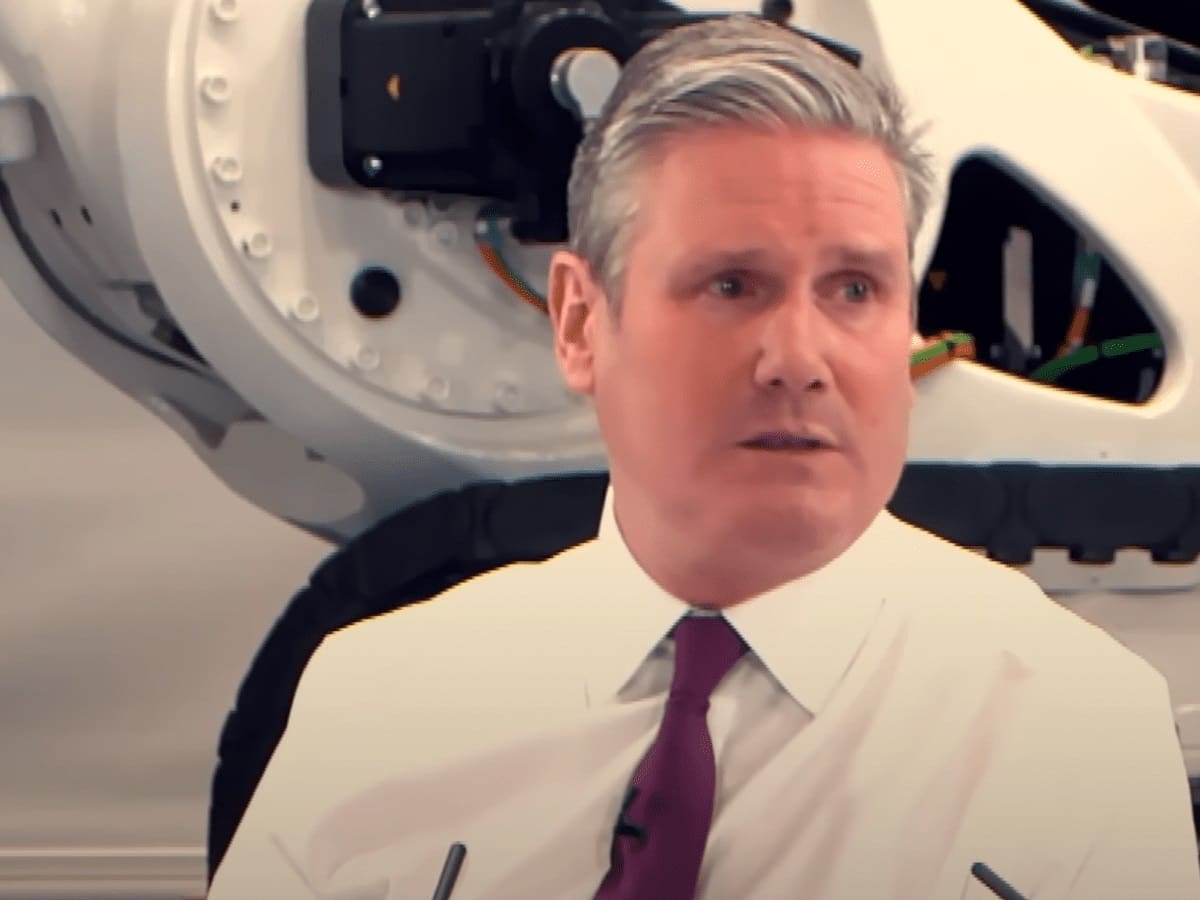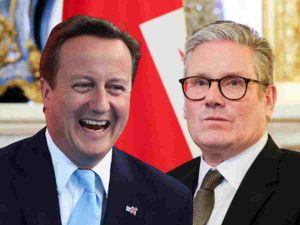Keir Starmer has announced that Labour aims to increase military spending if elected. The Labour Party leader echoed the policy of the Conservative Party in calling for 2.5% of GDP military spending – an increase from the present 2.2%.
The right way to talk about public spending – but only for the military
Starmer said the issue of the military was resource-based, stating he would raise spending:
as soon as resources allow
But with government spending that’s always the case, given the UK has a fiat currency which is partly dependent on the nation’s resources, manpower, and expertise. There is no gold-standard.
What macroeconomist John Maynard Keynes said in a 1942 BBC address holds true today:
Anything we can actually do, we can afford… We are immeasurably richer than our predecessors. Is it not evident that some sophistry, some fallacy, governs our collective action if we are forced to be so much meaner than they in the embellishments of life?
Opponents of Keynes’ views on public investing argue that government spending doesn’t increase demand because it simply negates private investment.
But both wellbeing and work-based redistributive policies can bring about more demand through increasing the spending power of more rather than less people.
A billionaire won’t purchase anywhere near the amount of diverse products and services as thousands of people would with additional income.
Starmer could take on the resource-based logic he uses for military spending, but for house building or a green new deal.
But instead, it’s always only a question of cost – rather than ability – when the policies involve public investment.
Starmer dropped his pledge for £28bn a year in green investment, with Labour suggesting we cannot afford it.
At the same time, Starmer and the Tories’ aim to raise defence spending to 2.5% of GDP would reportedly cost around £9bn per year.
The US, meanwhile, spends 3.5% of GDP on the military, while China spends 1.6%.
Starmer: taking country “further backwards”
On social media, people reacted to Starmer’s aim to increase military budgets:
4 years of a Labour party trying to appeal to these guys and we now have a political discourse centred not on tackling austerity or reducing inequality, but on how much cash we spend on nukes. Congratulations Labour for creating a context to take the country further backwards pic.twitter.com/MNmRyiBnlq
— Matt Zarb-Cousin (@mattzarb) April 12, 2024
Some called out that the double standard also depends on a person’s politics:
Uncosted spend of £10 billion a year from Labour.
But don’t worry – it’s not a left wing figure saying we should use cash to improve the productive capacity of the economy. So it’s fine. pic.twitter.com/tIz5MbdHur
— Aaron Bastani (@AaronBastani) April 11, 2024
Others also criticised Starmer’s ‘no money’ claims:
So when Starmer said there’s no money for lifting people out of poverty, or ending austerity, what he really meant was that he intends to siphon the money off to pay for war-toys controlled by the US. pic.twitter.com/pUhbrIOIDm
— Jonathan Cook (@Jonathan_K_Cook) April 12, 2024
The UK’s nuclear weapons regularly receive maintenance in the US.
Labour’s Diane Abbott said Starmer has mismatched priorities:
Our public services are in crisis, there is a huge housing shortage, our transport network is shambolic, the planet is under threat and ordinary people are suffering a fall in living standards.
Now is not the time to increase military spending.https://t.co/2QoMeNGCis— Diane Abbott MP (@HackneyAbbott) April 12, 2024
Starmer’s Labour recently called for more privatisation in the NHS. And again, people compared that to Labour’s view on increased military spending:
Keir Starmer on the NHS: reform is the answer, not extra funding. We must be fiscally conservative to be taken seriously.
Keir Starmer on buying weapons: turn the taps on guys! Fill your boots, spend as much as you like and don’t worry about any reforms or scrutiny!
— Damian from Brighton (@damian_from) April 12, 2024
Starmer has taken a resource rather than only a cost-based approach, but for military spending. He doesn’t commit to that approach when it comes to investing in key issues like a sustainable future or housing security.
That’s simply not good enough.
Featured image via Keir Starmer – YouTube




